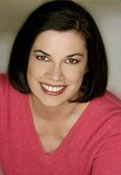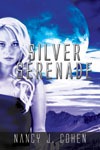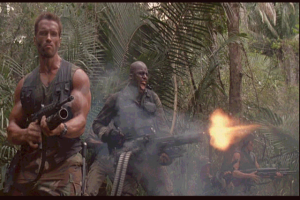Today, our guest is my friend and fellow South Florida writer Nancy Cohen. Nancy is the author of 15 novels including futuristic romance and mysteries. For many years, Nancy and I have served as beta readers for each other’s work.
 I like to discuss story development because despite all the advance plotting we do, fiction writing still remains a magical process. My agent is marketing a new mystery series proposal of mine. Here are some insights on how the story developed. It may help you with your own mystery.
I like to discuss story development because despite all the advance plotting we do, fiction writing still remains a magical process. My agent is marketing a new mystery series proposal of mine. Here are some insights on how the story developed. It may help you with your own mystery.
I’d written the first 20 pages but then I came to a halt. I was nearly to the point where I had to introduce the suspects, but I needed to know them better first. I’d made a list of the people who were family or acquaintances of the victim. Next, I gave them each a dirty secret so they all appeared to have a motive for murder. The next step, and one at which my subconscious came into play, was to connect the suspects to each other. This is when the story really starts to get more defined. Think of the Milky Way and how the planets swirl in a big sweeping motion around the central core of our sun. They start to condense, tighten, draw together. That’s what happens in my head. The story comes into focus.
Here is where personal experiences come into play as well. An acquaintance told me she sells an anti-aging product, and she handed me a flyer. Cool. One of my characters, a pharmacist, will be a snake oil salesman who markets a false product he claims is derived from water beneath the Fountain of Youth in St. Augustine. That’s where he lives, and I’d already planned to go there on a research trip.
Then I overheard a conversation in our beauty salon. Marla Shore, heroine/sleuth of my Bad Hair Day series, would have been proud of me. One lady spoke about how someone was running down ducks in her neighborhood and the cops were trying to catch him. The police would arrest him on charges of animal abuse. I gave this nasty act to another one of my suspects. It shows his perverted character.
For my people’s occupations, I used a book called The Fiction Writer’s Silent Partner by Martin Roth. This reference is a great source of inspiration. It lists all kinds of things related to character background, plotting, slang, genre conventions, and more.
Once I had the bare bones of my suspects, I searched for pictures to represent them. Here I plowed through my character file, where I keep photos I’ve cut out from magazines. I wait for that “Ah ha!” moment when the person’s face matches my character. This inspires the physical description and maybe adds more background on the individual’s personality.
Each suspect gets a page in my notebook with their picture and a brief description. The heroine/sleuth gets a full page with what I call my Character Development Tool. This includes physical traits, strengths and weaknesses, short and long term goals, dark secret, etc. See Debra Dixon’s book: GMC: Goal, Motivation, & Conflict for excellent advice on this topic. Besides the suspects and victim, then I have to develop the recurrent characters: the sleuth’s friends, family, colleagues, and love interest. Book one requires laying the groundwork for the entire series.
Once the character development is done and the relationships defined, the plot takes shape. Then I can write the synopsis. At this point, the words are ready to spill out on paper.
Do you develop your characters before plotting the story or vice versa? Or are you a pantser rather than a plotter?
 Nancy J. Cohen is a multi-published author who writes romance and mysteries. She began her career writing futuristic romances. Her first title, CIRCLE OF LIGHT, won the HOLT Medallion Award. After four books in this genre, she switched to mysteries to write the popular Bad Hair Day series featuring hairdresser Marla Shore, who solves crimes with wit and style under the sultry Florida sun. Several of these titles made the IMBA bestseller list. PERISH BY PEDICURE and KILLER KNOTS are the latest books in this humorous series. Active in the writing community and a featured speaker at libraries and conferences, Nancy is listed in Contemporary Authors, Poets & Writers, and Who’s Who in U.S. Writers, Editors & Poets. Nancy’s new release, SILVER SERENADE, is a sexy space adventure and her fifteenth title.
Nancy J. Cohen is a multi-published author who writes romance and mysteries. She began her career writing futuristic romances. Her first title, CIRCLE OF LIGHT, won the HOLT Medallion Award. After four books in this genre, she switched to mysteries to write the popular Bad Hair Day series featuring hairdresser Marla Shore, who solves crimes with wit and style under the sultry Florida sun. Several of these titles made the IMBA bestseller list. PERISH BY PEDICURE and KILLER KNOTS are the latest books in this humorous series. Active in the writing community and a featured speaker at libraries and conferences, Nancy is listed in Contemporary Authors, Poets & Writers, and Who’s Who in U.S. Writers, Editors & Poets. Nancy’s new release, SILVER SERENADE, is a sexy space adventure and her fifteenth title.
 We often discuss the different elements of writing fiction here at TKZ. Topics such as plot, narration, characterization, dialog, and point of view are just a few that come up now and then. But a topic that’s not touched on as often is theme. Theme is usually a global statement on what a book is about. Theme goes beyond plot by conveying the message that supports the structure of the story. In many instances, it expresses a lofty idea usually revolving around human emotions or life in general.
We often discuss the different elements of writing fiction here at TKZ. Topics such as plot, narration, characterization, dialog, and point of view are just a few that come up now and then. But a topic that’s not touched on as often is theme. Theme is usually a global statement on what a book is about. Theme goes beyond plot by conveying the message that supports the structure of the story. In many instances, it expresses a lofty idea usually revolving around human emotions or life in general.

 Nancy J. Cohen
Nancy J. Cohen![[image4.png]](https://killzoneblog.com/wp-content/uploads/2010/07/image4.png) It’s time for another Open Tuesday while our blogmate, Kathryn Lilley, is on medical hiatus. Bring us your questions, comments and discussions. If you have a question about writing, publishing or any other related topic, ask away in our comments section. We’ll do our best to get you an answer.
It’s time for another Open Tuesday while our blogmate, Kathryn Lilley, is on medical hiatus. Bring us your questions, comments and discussions. If you have a question about writing, publishing or any other related topic, ask away in our comments section. We’ll do our best to get you an answer.


